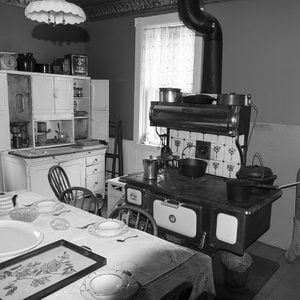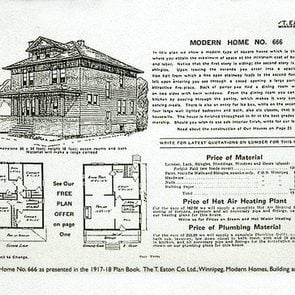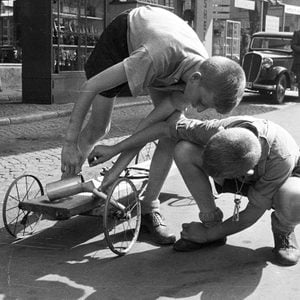Remembering the Old Country Store
In the 1930s, the country store was the hub of rural communities across Canada.
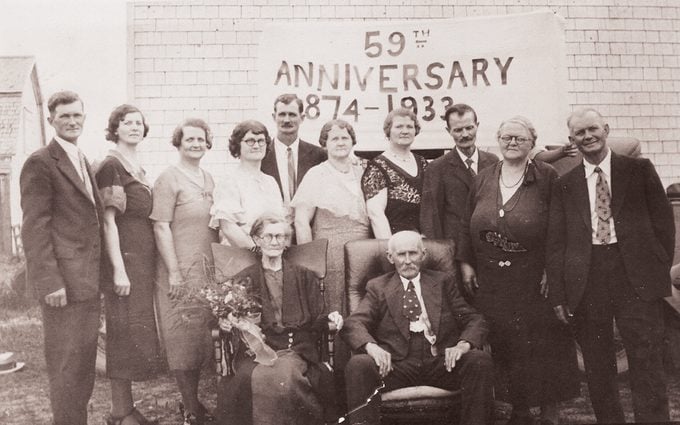
Where I grew up in rural Nova Scotia, we had a country store next door to our farm. When I was very young, it was operated by my grandfather, John W. MacKinnon, then later by my cousin Otis MacKinnon, who was about 25 years older than I was. The following are some of my childhood memories of that old country store in the 1930s.
I barely remember my grandfather operating the store, as I was so young. I do know that most everything was sold on credit and he had a bill pad for each customer. He used a lead pencil and each time he wrote, he would wet the lead by putting the tip up to his mouth.
Most of my recollections are of when my cousin Otis took over running the store in 1936, when I was seven. He, too, used the bill pads to record customers’ purchases. I remember my dad would settle his bill each month, then go home and add up all the items to double-check the amount.
One of the things I remember best about when Otis ran the store was that he sold gas. Back then, gas was pumped into a large glass cylinder atop the gas pump, which marked off the gallons. Otis had a yardstick with paste on the end, which he’d use to check whether there was any water in the underground storage tank, as the tank leaked. If water was present, the paste would turn a different colour. Then, Otis would put a pipe down into the tank with a pitcher pump in order to pump out the water. When he got near the last of the water, he’d strain it through a felt hat—the gas ran through but the water did not.
Don’t miss these fond reminiscences of the country store in Royal Lake, Saskatchewan.
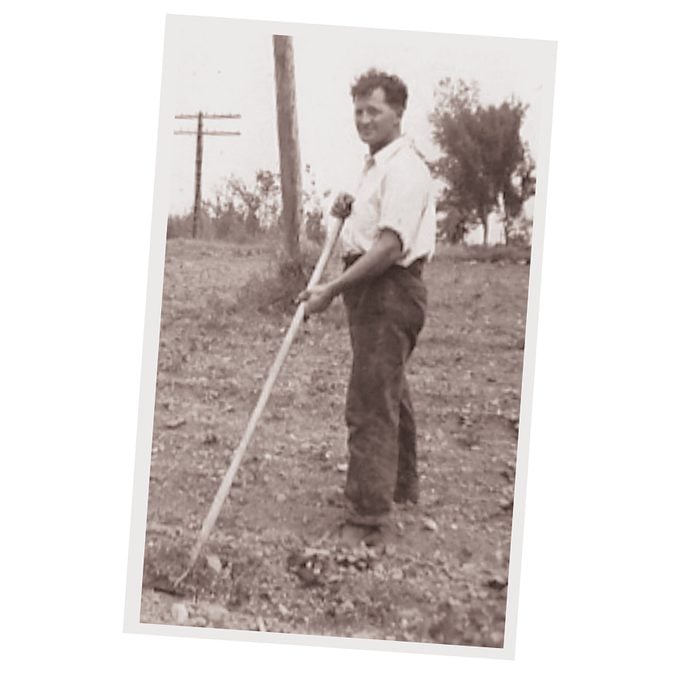
Sticky situations
Sometimes I would be sent to the store for a pail of molasses. This little pail held something around a quart. Otis bought his molasses in 90-gallon barrels and it was so thick that he would set my pail under the spigot, then turn it on and go do something else for five or ten minutes while the pail filled. You could literally spread this molasses on your bread about an eighth of an inch thick.
Most everything in the store was sold in bulk. If you bought a pound of cheese or meat, it would be wrapped in brown paper from a dispenser on the counter and tied with a string around it. Other items such as oatmeal would be measured out into brown paper bags. These, too, would be tied with a string. Flour was usually sold in 90- or 100-pound bags.
Otis put a slot machine in that took nickels (or slugs you could buy for a nickel), so I guess you could say I gambled at a very young age. I remember the day the RCMP came and took the slot machine away. No one was fined as far as I know.
Cold as ice
Most country stores had no refrigeration but Otis had an ice house. It was located across the highway from the store. This was a pole-barn type of building with a roof, boarded up on the outside. When ice was being cut on Mattatall Lake, he would have this large building filled with ice. About three feet of sawdust would be placed around and over the ice. This would last about a year.
He built a room at the rear of the store, with thick walls and a door, which he filled with sawdust. In here he used blocks of ice to keep meat, eggs, milk and other items that needed cool storage. There was a pop cooler in the store, too, where Otis would place a block of ice to have cold pop on hand to sell to his customers.
Local hub
Interesting things always seemed to happen in and around the store. I remember being in there one day when a caravan of cars stopped and a group of people came into the store. Some of them distracted Otis, while others went behind the counter. I don’t know what they managed to take, but Otis soon had them hustled out the door!
Some of the social life of the community centred around the store as well. Especially on Saturday evenings when some of the local farmers and fishermen would come to sit around on chairs or benches and tell stories. I don’t remember the specific stories, but I can still see the fishermen making nets or heads for their lobster traps.
In those days, there were no TVs, computers or cellphones to distract us. Life was busy and full of fun and we lived it to the fullest. The country store played a big part in our lives then.
Next, read the heartwarming story of how Andy’s Chinese food became the best in east central Alberta.
